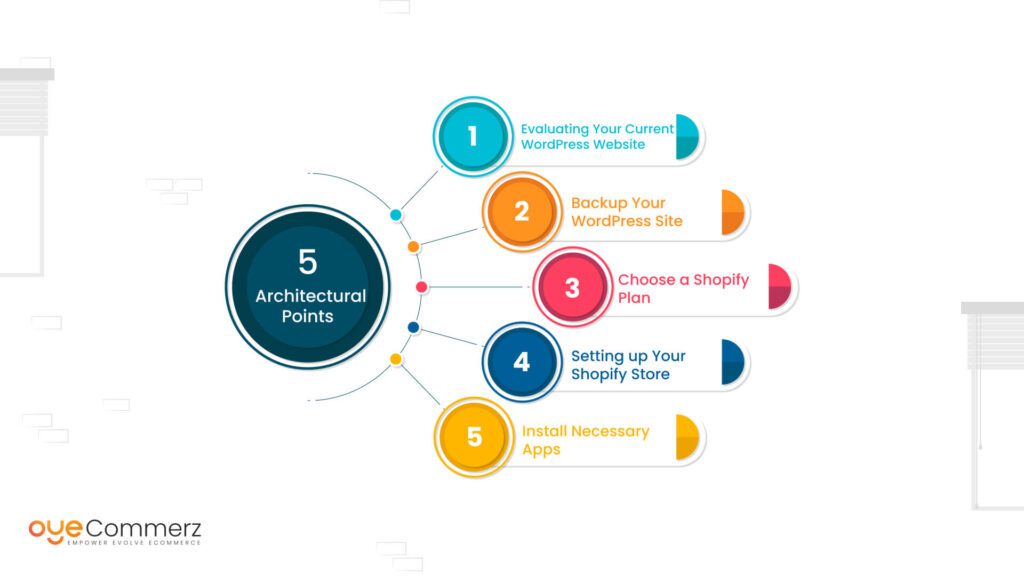In the dynamic sphere of digital commerce, picking the best system is essential for your company’s growth. If you’re at the moment using WP and planning a migration to an alternative, you’re not by yourself. Countless businesses are switching to take advantage of Shopify’s powerful capabilities, ease of use, and expandability. This guide will take you through the process of migrating from WordPress to this platform smoothly, making sure that you realize your eCommerce potential.
Why Migrate from WP to this platform?
Before diving into the migration journey, it’s crucial to know why this shift can be beneficial for your online store:
User-Friendly Interface: Shopify features an user-friendly dashboard that simplifies store handling, allowing for non-technical users.
Scalability: As your brand expands, Shopify can accommodate higher visitors and sales without sacrificing speed.
Integrated Features: Shopify comes with pre-installed features for SEO, analytics, payment management, and much more, minimizing the necessity for multiple plugins.
Advanced Safeguards: With Shopify, you get access to robust security protocols that protect sensitive customer information.
Steps for a Seamless Migration
Migrating your eCommerce site from WordPress to Shopify includes several actions.
Here’s the way to ensure a successful transition:
Plan Your Migration Approach
Start by mapping out your migration plan. Decide on which aspects of your present site you wish to move, such as:
Item details
Customer information
Transaction records
Blog content
Select the Right Migration Solution
Depending on your requirements, select a migration plan that suits your store. Migration experts provides multiple options:
Entry-Level Plan: Ideal for compact stores with limited products.
Mid-Tier Plan: Recommended for mid-range businesses with moderate requirements.
Comprehensive Solution: Best for big stores needing broad customization.
Secure Your Data
Prior to beginning the migration, ensure that you have a full archive of your WordPress site. This action is critical in case anything goes awry during the move.
Export Your Content from WP
Use plugins or custom scripts to extract essential content from your WP site:
Products
Customers
Transactions
Content pieces
Migrate Data into Shopify
After you have your information extracted, use Shopify’s built-in features or specialized apps to transfer your information into your new store. Verify that all information is accurately formatted and arranged.
Personalize Your Shopify Platform
Once importing data, tailor your Shopify platform’s design to reflect with your style. Look into hiring a developer if you need complex WordPress vs Shopify features customization.
Configure Checkout Systems and Logistics
Arrange billing solutions and delivery choices in Shopify to ensure a user-friendly checkout experience for customers.
Implement SEO Best Practices
To maintain your online visibility during the change:
Implement 301 link updates from existing URLs to migrated ones.
Refresh descriptions.
Optimize media and copy for SEO.
Review Your Migrated Store
Ahead of launching, thoroughly review your Shopify platform. Look out for any errors, payment processing issues, or untransferred content.
Publish Your Store
Once everything is in place, it’s the moment Shopify customer data tools to publish! Share the change to your clients and encourage them to discover the new features of your Shopify store.
Post-Migration Support
Following launching your new store, ongoing assistance is key. Think about working with professionals who can guide with:
Site maintenance
Promotional campaigns
Improvement strategies
Conclusion
Migrating from WordPress to Shopify can be a transformative move for your online retail. By following this guide and leveraging tools like those offered by industry leaders, you can guarantee a effortless transition that enhances your business potential. Accept the shift and unlock the advantages of Shopify today!
